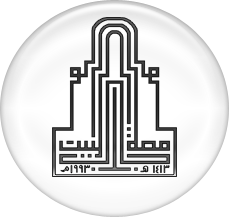| DC Field | Value | Language |
|---|
| dc.contributor.author | آدم نوح معابدة القضاة | - |
| dc.date.accessioned | 2015-04-08T01:05:54Z | - |
| dc.date.available | 2015-04-08T01:05:54Z | - |
| dc.date.issued | 2004-05-16 | - |
| dc.identifier.uri | http://hdl.handle.net/123456789/85 | - |
| dc.description.abstract | الملخص
تهدف هذه الدراسة إلى بيان مبادئ التشريع الإسلامي في الوقاية من الفساد الإداري والتعامل مع تبعاته المالية والإدارية. تتناول هذه الدراسة أهم التدابير الشرعية في سبيل وقاية الفرد والمجتمع والنظم الإدارية من الفساد الإداري، كما تتناول الأسس التي يتعامل من خلالها الفقه الإسلامي مع الأشخاص الفاسدين إدارياً والتبعات المالية والإدارية المترتبة على سلوكهم. توصلت هذه الدراسة إلى وضع الإطار النظري العام الذي يمكن من خلاله دراسة هذه الموضوعات وغيرها من الموضوعات ذات الصلة، بما يبرز جهود الفقهاء المسلمين في هذا المجال، ويسهم في تحديد المعالم الشرعية له.
Abstract
The present study identifies principles in the Islamic legislation, pertaining to the prevention of Administrative Corruption, and how to treat its managerial, and financial consequences. The current study thus explores most significant legal provisions, in an effort to keep the individual, the community, and the management systems away from the administrative corruption. Also it deals with the basis on which administratively corrupted persons are approached by the Islamic Fiqh, and what financial and administrative consequences are entailed by such misbehaviors. The study develops a general framework, within which one can study similar and other relevant subjects, in a way that makes salient the contributions made by Muslim Jurisprudents in this field, and that motivates identifying its legal hallmarks. | en_US |
| dc.title | نحو نظرية إسلامية في الوقاية من الفساد الإداري والتعامل مع تبعاته | en_US |
| dc.type | Other | en_US |
| Appears in Collections: | ابحاث المجلد 2 العدد 3
|

